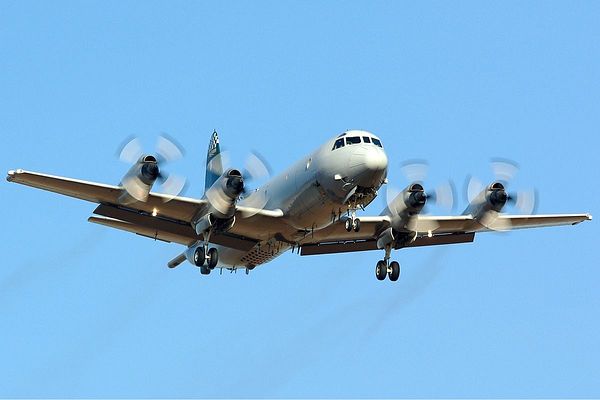As Canada, Australia cry foul over close shaves with Chinese jets, Beijing vows to protect peace in South China Sea.
China on Monday justified its move to deploy military jets when Canadian and Australian surveillance planes were hovering over the South China Sea, asserting that it was reacting to potential threats to regional peace and stability.
Beijing will not allow “any country to violate its sovereignty and security, and harm peace and stability in the South China Sea, using ‘freedom of navigation’ as an excuse,” said Zhao Lijian, a spokesperson for China’s Foreign Ministry.
He was responding to claims by Canada and Australia that their surveillance planes were put at risk by dangerous Chinese air maneuvers.
Canada said its planes were only in the region to help “enforce US sanctions on North Korea” and were “repeatedly buzzed by Chinese jets that fly so close their crews can see each other.”
Pyongyang, which is under severe UN and US sanctions for its refusal to abandon its nuclear program, has been repeatedly accused by the West of violating the restrictive measures.
Dan Le Bouthillier, head of media relations for the Canadian military, said Chinese jets “did not adhere to international air safety norms” and their “unprofessional” actions put the lives of Canadian personnel at risk.
Zhao, however, dismissed the Canadian claims, saying there is no UN Security Council resolution that has “authorized any country to deploy forces in territorial waters or airspace of another country to uphold a resolution,” state-run daily Global Times reported.
Australia said its surveillance plane was “cut off” by a Chinese fighter jet in “international airspace” over the South China Sea on May 26.
The “dangerous maneuver” by a Chinese J-16 fighter plane “posed a safety threat” to the Royal Australian Air Force P-8 aircraft and its crew, according to a Department of Defense statement on Sunday.
China’s Defense Ministry said on Monday that the Canadian military aircraft’s “close-in reconnaissance … made provocations that harmed China’s national security, and put the safety of both sides’ personnel at risk.”
“Chinese military quickly took reasonable, powerful, safe and professional measures to deal with Canada’s provocation and its unfriendly, unprofessional moves, and proposed official negotiations through diplomatic channels,” the ministry said in a statement.
China claims sovereignty over parts of the resource-rich South China Sea, leading to disputes with several countries including the Philippines, Malaysia and Vietnam.
The Philippines won a case at the Permanent Court of Arbitration in The Hague in 2016, which invalidated China’s expansion claims over the sea.
China’s assertions are based on its “nine-dash line” – purple dashes on official Chinese maps that denote Beijing’s historical claims over the South China Sea.
The US has also formed a loose security alliance with India, Japan and Australia, called the Quad, to counter China’s expanding economic and military influence in the wider Asia-Pacific region.
It recently signed the Indo-Pacific Economic Framework with 12 nations to shore up trade ties in the region, a move strongly opposed by Beijing.
-AA

